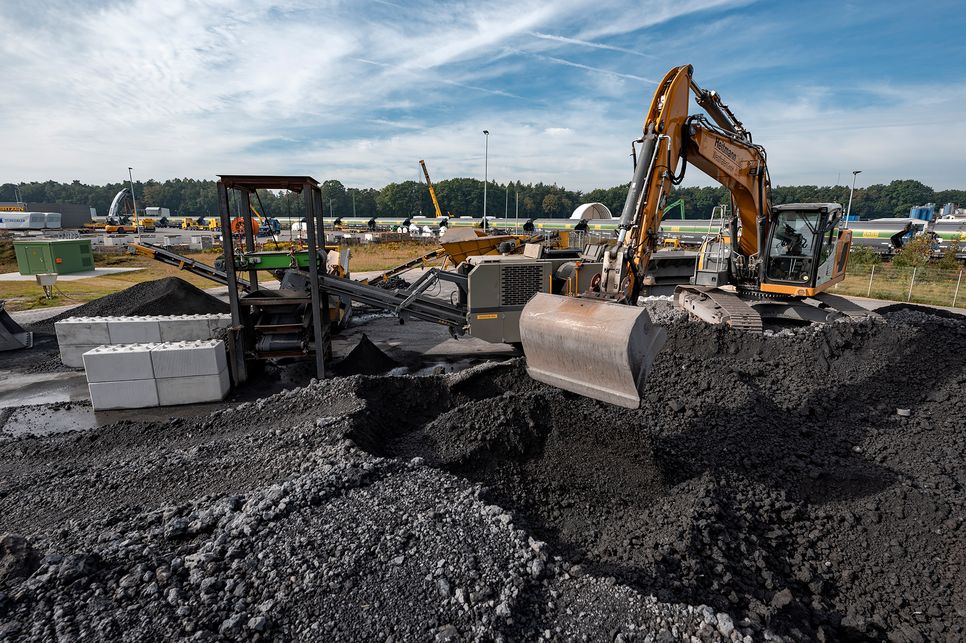
Georgsmarienhütte, 11 October 2023
Georgsmarienhütte GmbH processes steelwork slag at its own slag yard in Spelle
Georgsmarienhütte GmbH has commissioned a new slag processing site of up to 4.6 hectares at the port in Spelle-Venhaus. The move is part of the company’s goal to put the by-products from steel production to further, sustainable use.
Georgsmarienhütte GmbH produces 90,000 to 120,000 tonnes of electric arc furnace slag (EOS) annually during steel production at the GMH Gruppe’s largest production site. In order to make further use of this by-product as a recyclable material, the company has now commissioned one of the most modern slag processing facilities in Europe at the port in Spelle-Venhaus. On an area of currently 2.3 hectares – expandable to up to 4.6 hectares – up to 1,000 tonnes of EOS can be processed daily for further use.
“We chose the site at the port in Spelle-Venhaus because we have sufficient space here and good transport links,” explains Marc-Oliver Arnold, Plant Director at Georgsmarienhütte GmbH. “The slag can be transported here by lorry and later, if possible, also by rail. After processing, transport by ship is then also possible.”
Upon delivery, the coarse raw slag material is first crushed and then classified into different grain sizes with the help of various processing systems, such as jaw crushers, impact mills and multi-stage screening plants. At the same time, steel that is still in the material is sorted out via various stages with magnets. This material flows back into the various steelmaking processes as scrap. The processed slag is mainly used as a carrier material in road construction. This saves resources because the slag replaces natural rock materials that would otherwise have had to be mined elsewhere.
The operation of the site, and the storage of slag material, was approved by the relevant authorities in accordance with Germany’s Federal Emissions Control Act. Various measures have been taken to ensure that the legal requirements are met and, for the most part, significantly exceeded. For example, all rainwater that cannot drain away naturally is collected on the paved areas and purified by a special filter system. Water sprinklers also minimise the spread of dust. In addition, high, soundproof walls protect the distant neighbourhood from noise emissions.